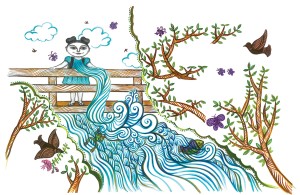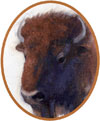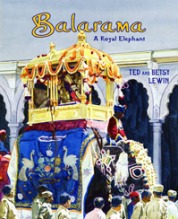Grab a flashlight, bug repellent, and binoculars…
Each week this summer, we are pairing Lee & Low titles to your favorite summer destinations with fun activities!
Your summer outing: national or state parks!
- Buffalo Song
- Everglades Forever: Restoring America’s Great Wetland
- I Know the River Loves Me/ Yo sé que el río me ama
- A Man Called Raven
Questions during reading:
- How have humans affected the habitat or animal species in the book?
- What suggestions does this book offer to take care of the world around us?
- What risks does the animal species or habitat face in the book?
- How does this person(group) demonstrate respect for the environment?
- How do healthy animal populations and habitats benefit people?
- What happens when people do not take care of the environment or an animal species in the book?
- What does this text teach about sustainability?
- Do you think communities and governments have a responsibility to protect animals or the environment? Why or why not?
- Should school field trips include visiting national and state parks? Why or why not? What are the benefits of children visiting national and state parks?
1. Sound scavenger hunt!
Many animals rely on sound to detect nearby predators and search for food. For your next scavenger hunt, use the sense of sound to explore the wonders of the state or national park. This activity is a great way to teach young scientists about:
- our five senses
- how the human ear, like other animal ears, is a powerful physical adaptation and is very effective in detecting and differentiating sounds
- how we can appreciate natural beauty as both visual and aural
- the importance of slowing down and soaking in all the stimuli around us
Make a list of sounds for your child to “find” on the next hike. Together, check off and record as the child hears them! While you will want to adapt specific sounds to the park you are visiting, sound ideas include:
- the local bird species
- the rustling of an animal in the bushes
- the wind among grass or tree leaves
- sound of the nearest water source (river, ocean)
- the buzzing/humming of insects
- sound of walking on different types of surfaces: the trail, through leaves, in mud
- a hiker whistling
- a swimmer splashing
- a dog barking or the clinking of a dog collar
- sound of something being recycled
- sound of something hollow
- an echo
- sound of food being unwrapped
- horse clopping/trotting
- a stick snapping
- a hiker drinking (chugging) water
- Bonus: the elusive spot of complete silence
To prove that your child experienced the sound, allow your child to:
- record the sounds on a phone
- take a picture of the creature or thing making the noise
- describe the noise in a sentence with a juicy verb, such as chirping instead of singing
2. Animal and ecosystem observation!
Even if your nearest state or national park does not have the wildlife or habitat featured in the book, your young scientist can check out the featured animals or habitat in real life and real time from a computer or mobile device. Many national parks, zoos, and wildlife protection groups offer real-time footage of animals that serve as great opportunities to talk about behavioral and physical adaptations and habitat preservation.
Explore.org offers multiple livecam opportunities to observe wild animals outside of zoos. After finishing Buffalo Song, I checked out Canada’s Grasslands National Park for bison. I observed brown bears and salmon from Alaska’s Brooks River in Katmai National Park following I Know the River Loves Me. After A Man Called Raven, I used The Cornell Lab of Ornithology Macaulay Library for videos and audio recordings of ravens.

I Know the River Loves Me
For further book and activity suggestions to match your summer adventure:
 Literacy Specialist, Jill Eisenberg, began her career teaching English as a Foreign Language to second through sixth graders in Yilan, Taiwan as a Fulbright Fellow. She went on to become a literacy teacher for third grade in San Jose, CA as a Teach for America corps member. She is certified in Project Glad instruction to promote English language acquisition and academic achievement. In her column she offers teaching and literacy tips for educators.
Literacy Specialist, Jill Eisenberg, began her career teaching English as a Foreign Language to second through sixth graders in Yilan, Taiwan as a Fulbright Fellow. She went on to become a literacy teacher for third grade in San Jose, CA as a Teach for America corps member. She is certified in Project Glad instruction to promote English language acquisition and academic achievement. In her column she offers teaching and literacy tips for educators.
Filed under: Educator Resources, Summer Tagged: children's books, close reading, Educators, environmentalism, Reading Aloud, reading comprehension, summer, summer reading, Summer School








 as a courtesy to our readers only and recommends you speak with your child’s teacher for recommendations.
as a courtesy to our readers only and recommends you speak with your child’s teacher for recommendations. as a courtesy to our readers only and recommends you speak with your child’s teacher for recommendations.
as a courtesy to our readers only and recommends you speak with your child’s teacher for recommendations.
Great blog. My reading experienced was positive from the very beginning because I met a librarian who took the time to make sure I was checking out the “right” type of books – books that would push me to learn and explore. Shout out to Mrs. Higgins!!
Please visit our site: http://www.pierotucci.com or our blog http://pierotucci.wordpress.com